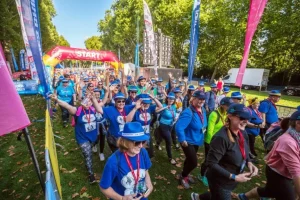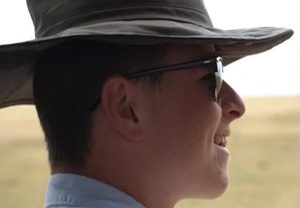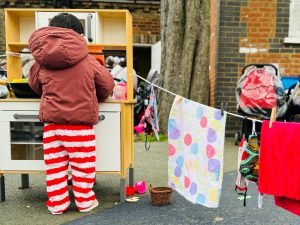Now entering its second year of three providing chess classes to schools in Liverpool, Rebecca Pirt (The ALMT Partnerships and Grants Officer) went to visit the project and see what was happening:
‘Having never been to Liverpool before, I was excited to visit the city. I was so impressed with the train – 2 hrs 15 from London to the centre of Liverpool!
Chess in Schools has been working in Liverpool for many years and has extensive links with schools across the city. I joined Malcolm Pein at the station to get the metro to St George’s School in Wallasey Village. St George’s is a large school with 5 form entry and 120 children in each year. Due to its size and location there is a mixed intake but the staff team has noticed that things have got a lot more difficult for families during the pandemic with many parents losing their jobs and finding it much harder to make ends meet. Because of the size of the school, they are able to run a chess class for a specific SEN class of 12 children with additional needs – this is a first for Chess in Schools. The majority of these children have ADHD or are on the autistic spectrum.
The tutor at the school is Natasha and she has taken it slowly with the SEN children, adding a different chess piece each week. They are enjoying the visual aspect of learning. The socialising and pairing with different partners has had obvious benefits for this group as this is something they normally find difficult. The Deputy Head, Maria and Lindsey, the SEND teacher, have been impressed at how engaged the class are in the chess lessons and the fact that they sit thoroughly engaged for the full 45 minutes.
Since covid the school has noticed a lot of activities are happening in isolation and the children have not necessarily got the ability to see links across the curriculum. When the children first came back to school everyone was pleasantly surprised by their positivity. However they have now seen various anxiety issues emerging and are trying to build back stamina. The CAMHs service in Wallasey has a three year waiting list and there is little support for children with mental health. They have also noticed an increase in speech and language needs. As St Georges is a large school they are able to buy in some additional services to support children in these areas but not all schools are in this position. This is something that the teachers are keen to address and chess is a great way to promote connectivity with other subjects – particularly maths.
Firstly, we visited the SEND class and was impressed by both their engagement and skill. They managed to set up the board in 35 seconds (quicker than most adults I am sure) and were able to tell me all about the difference between check and checkmate. James, Scarlet and Michael were naturally gifted chess players and the school is keen to celebrate this success with them. We went on to visit class 3B who had an extensive and detailed knowledge of the rules and were even able to tell me all about ‘en passant’. Malcolm played the whole class and they managed to control the centre of the board and ‘castle’ which meant that Malcolm had to get his queen out early. Not many classes can claim to have played an International master at chess!
It was a privilege to be able to see the project in action. There are so many benefits to activities of this kind; from sportsmanship to memory skills, pattern recognition to consequential thinking. Whilst having fun, these children are embedding learning that will stay with them long after this project ends. It has been a bleak couple of years and it is fantastic to see children enjoying themselves in the classroom once again.




